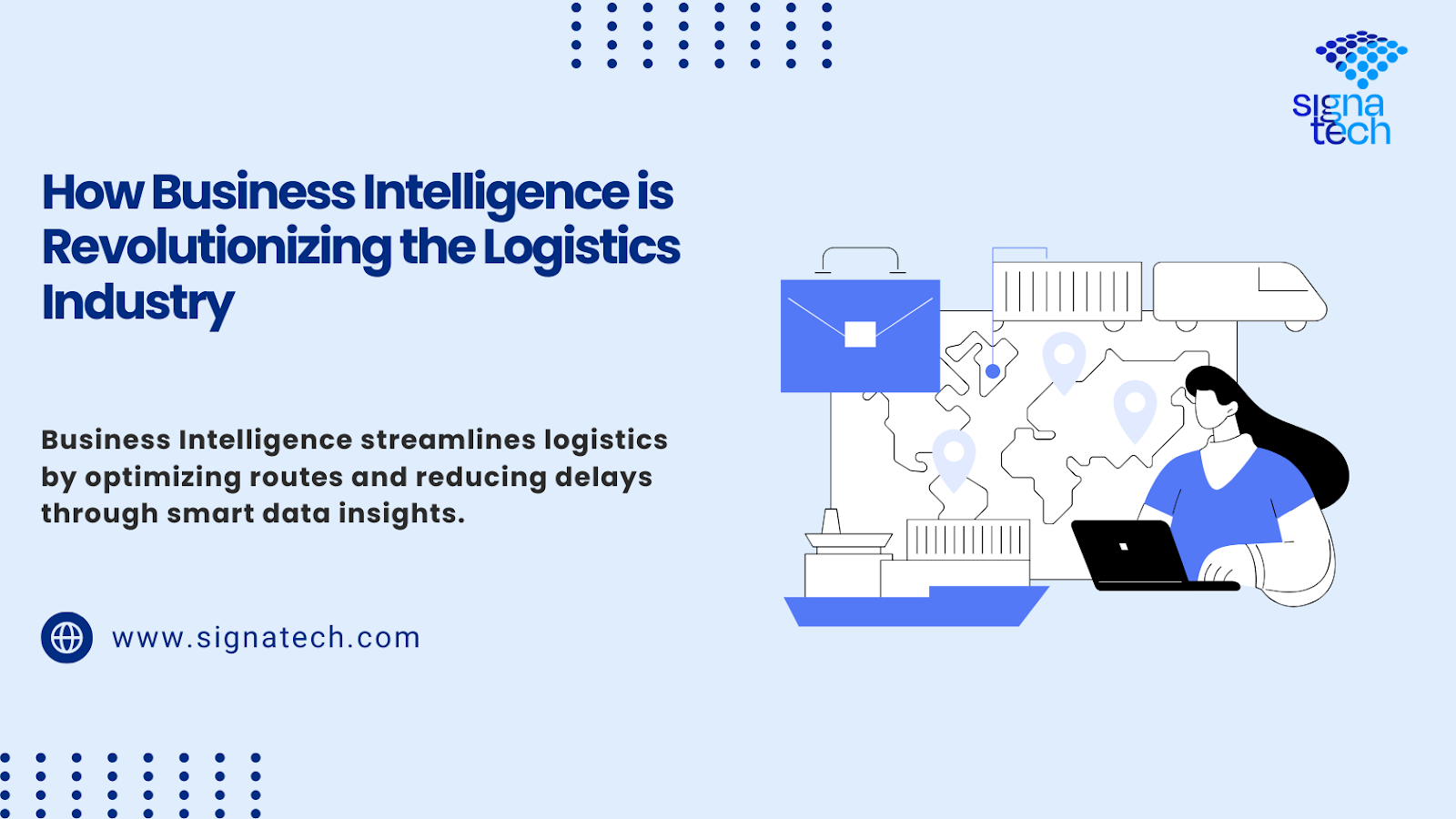The logistics sector has always been a tangled weave of supply chain functions, planning, stocking, shipping and meeting end customer requirements. Increasing customer expectations, faster delivery times, and globalization are forcing the hands of the logistics to perform better and at lower costs. And in the midst of this revolution, Business Intelligence (BI) is a game-changer for logistics companies – transforming the way they run their business, their ability to analyze and inform strategy.
Unlocking Data-Driven Decision-Making
Huge amounts of data are created every day in logistics—information on inventory levels, the status of shipments, delivery performance and fuel consumption. But information means nothing without some analysis – otherwise, it is just data. Business Intelligence is considered as the mediator between the raw data and the intelligent decision making.

#image_title
By integrating BI tools into logistics systems, companies gain:
- Real-time visibility across supply chains
- Predictive analytics to forecast demand and delays
- Descriptive analytics to understand past performance
- Diagnostic tools to pinpoint inefficiencies and their causes
By using BI dashboards and reporting instruments, managers and stakeholders are able to get a firm view over KPIs, hidden trends, and promptly adapt to any market changes.
Route Optimization and Fuel Efficiency
Transportation is a key side of the logistics coin — and is frequently the one that’s most costly. Business Intelligence service solutions allow logistics companies to monitor how vehicles are being operated, how these vehicles perform, and what route is best for deliveries. And with this ability, companies can:
- Minimize fuel consumption
- Avoid traffic congestion
- Improve delivery speed
- Enhance customer satisfaction
By leveraging historical information and live traffic data, BI generates optimal routes for fleet operations, saving cents per mile driven while improving on-time arrival performance.
Inventory Management Made Smarter
It is important to manage inventory effectively to prevent overstocking, stockouts, and consequent losses. Through BI, logistics businesses can automate the process of tracking inventories, predict product demand, and efficiently manage warehouse space.
Business Intelligence helps in:
- Reducing excess inventory by forecasting demand accurately
- Managing reorder levels using historical consumption patterns
- Tracking product movement from storage to shipment
- Identifying slow-moving or obsolete items
Such insights not only ensure product availability but also lower operational costs and reduce waste.
Enhancing Customer Satisfaction
Customers’ expectations are simply not the same. They want to be able to track in real time, estimates for shipping that are true, and communication that is constant. Also through BI tools, you can analyze customer interactions, order history and delivered feedback to better curate services and identify issues before they become issues.
By integrating BI with CRM systems, logistics providers can:
- Identify frequent issues and proactively resolve them
- Offer personalized delivery solutions
- Maintain high service quality through performance monitoring
Risk Management and Predictive Analytics
In logistics, weather delays, customs hitches, mechanical problems are par for the course. But then again Business Intelligence service platforms offer predictive analytics which allows companies to predict possible disruptions and prepare for them in advance. Risk management can be achieved through scenario planning and data manipulation.
BI enables:
- Forecasting seasonal or regional risks
- Understanding supplier reliability
- Evaluating transportation delays across different routes
- Monitoring compliance issues and regulatory risks
Such a predictive framework provides logistics managers with insights to be more agile in their decision-making processes, therefore reducing losses and ensuring continuity.
Signatech’s Role in Transforming Logistics with BI
As companies compete to keep pace in the world of logistics, having BI has become a necessity rather than a luxury. Signatech has established itself as a leader in offering tailored BI solutions for logistics firms of all sizes.
Using its advanced analytics, dynamic dashboards and industry-specific metrics, Signatech enables organisations to:
- Gain deep operational insights through data unification
- Automate repetitive tasks using intelligent algorithms
- Reduce delivery times through optimized planning
- Streamline warehouse operations with real-time alerts
Their customized BI solutions easily connect to legacy logistics system and scale well to meet expanded/renewed requirements. Through Signatech, logistics companies have the power to take proactive decisions, minimise business risk and achieve sustainable growth.
The Competitive Edge
Logistics is a data business, and what distinguishes leaders is not the size of their fleet or the reach of their network, but how smartly they use their data. Companies use business intelligence to turn mushy, unstructured data into concise, strategic insights – it is the difference between being in business or keeping a business.
With the right BI framework in place, logistics providers can:
- React to market trends faster
- Reduce costs and improve efficiency
- Enhance service levels and build customer loyalty
- Scale operations with confidence
In an industry where margins are tight and customer satisfaction is everything, BI is the game-changer that gives logistics companies the edge to not only survive, but to thrive.
And working with reliable partners such as Signatech, logistics players have the capacity to utilize the full potential of Business Intelligence—leading to more intelligent, faster and more profitable processes at every level.
